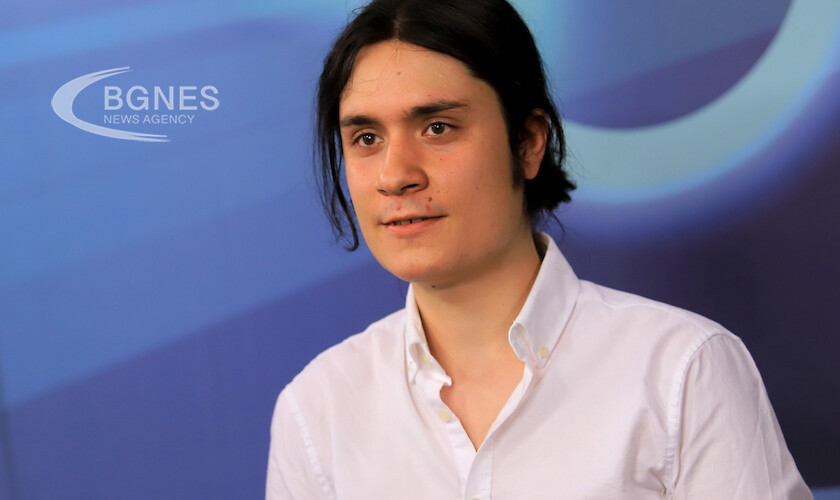Ivan Sariev: The action scenes in “Black Widow” are forgettable
The Marvel Cinematic Universe (MCU) has become the most successful film franchise in history. The series of 24 films has earned approximately 23 billion dollars at the box office. Natasha Romanoff (Scarlett Johansson), also known by her alter ego the Black Widow, has been a consistent character in the MCU. First introduced in “Iron Man 2” (2010), she has since been featured prominently in 8 of the movies in either a supporting or a main role. And now, 11 years after her debut, we finally get her first and most likely only standalone film “Black Widow” (2021).

The character of Natasha Romanoff serves an important role in the main storyline of the MCU. As a founding member of the Avengers, a group of superheroes that protects Earth from alien threats, Natasha plays a key part in the climax of the Infinity Saga during “Avengers: Endgame” (2019). She has been the series main female protagonist and has become a fan favourite. However, her image as a female superhero lacks development and depth. There has always been the impression that her character was the token female superhero in the group of Avengers. Her role in “Avengers: Age of Ultron” (2015) boils down to a romantic subplot that receives no further development. Thus, the release of a standalone movie is not only important for the character of Natasha, but also for the portrayal of female superheroes as a whole. However, my own opinion is that the movie does not live up to the expectations and fails to bring any new developments to the character of Natasha.
The movie starts off with a prologue, which tells about Natasha’s life in the USA with her sister Yelena (Florence Pugh) and their guardians, the Russian spies Alexei (David Harbour) and Melina (Rachel Weisz). Following the theft of classified information from the American government, they flee to Cuba and make contact with their commander, General Dreykov. Natasha and Yelena are taken to be trained as deadly spies as part of the Red Room program. We already know from the other movies that Natasha will flee and join the US intelligence agency S.H.I.E.L.D. during the Budapest Operation.
The story in “Black Widow” continues with a 20-year time jump, following the events of “Captain America: Civil War” (2016), when the Avengers have been disbanded, and Natasha has been forced again into hiding by the American government. She flees to Norway, where she is attacked by the Red Room agent Taskmaster. In the aftermath Natasha learns that she needs to go to Budapest to find out the reason for this attack. There she meets her sister, Yelena, who in the meantime has managed to escape from the Russian agency. They decide to team up and find out the location of the Red Room in order to put an end to General Dreykov and his ambitions. This puts them on a journey to reunite with their guardian parents, which will force the sisters to confront their past.
“Black Widow” strives to be more than just a spy thriller, touching on themes such as one’s own identity, affiliation and the path one must take to discover a family to belong to. Along this path, we are introduced to Natasha’s sister, Yelena Belova, who, because of the events in “Avengers: Endgame”, has to take on the mantle of Black Widow in the future MCU films. This places additional demands on the already packed with expectations movie to deliver another strong female protagonist.
Thankfully, the character of Yelena is portrayed in a believable way, which is most evident in her interactions with Natasha. I would argue that the latter scenes are the best part of the movie. Johansson and Pugh play off each other really well. The dialogue they produce is that of two sisters bickering between themselves. Pugh’s character even makes fun of Natasha for her weird landing poses. But the two sisters also seek each other for support. Thus, I look forward to this new incarnation of the Black Widow and to see whether Yelena will be a worthy successor of her sister.
Though the script helps make the relationship between the sisters look authentic, the same cannot be said of the way it handles their relationship with their guardians. From Natasha's point of view, they are responsible for the sisters growing up as child soldiers, and all the psychological trauma resulting from that. This is only partially addressed by Natasha in one of the scenes in the movie, but then promptly forgotten. The plot rushes to its climax and the child-parent relationship does not get the necessary time for resolution. However, the movie has Natasha get closer to her guardians and by the end she even perceives them as her real parents.
Outside of the relationship with her family, Natasha does not get much character development. The movie tells us little about her life prior to her joining S.H.I.E.L.D. and decides to tell us nothing about what made her switch sides. Throughout the movie, we get a constant mention of a mission referred to as the Budapest Operation, which was undertaken by Natasha and Hawkeye to eliminate General Dreykov. This mission has been introduced by the other MCU movies as the turning point for Natasha, where she proves her loyalty to the Americans. Yet, despite it being an important part of Natasha’s life, her friendship with Hawkeye, and even to the movie itself as we learn that Dreykov survives, the Budapest Operation gets only a brief mention, and we are left to speculate on what made Natasha join S.H.I.E.L.D.
The action scenes in this movie are forgettable except for a car chase in Budapest (different from Operation Budapest). A big problem with the movie is that no hand-to-hand combat scene stands out. Although most characters are well-trained martial artists, we do not get to see this in action. In one of the scenes, Natasha gets surrounded by a group of enemies, but after a minute of hand-to-hand combat, she resorts to the use of firearms. We are introduced to Red Guardian (Alexei), who is supposed to be the Soviet version of Captain America, but even he does not get a full action scene in which we can compare how he stands up to his American counterpart. It feels like wasted potential.

The main villain, Taskmaster, has been poorly used in the film as well. In concept, Taskmaster is a great foil for any superhero as they have the ability to perfectly mimic anyone’s fighting style just by looking at them. Examples include Taskmaster throwing a shield like Captain America and shooting with a bow and arrow as accurate as Hawkeye. However, the action scenes with Taskmaster lack this element. We do get a single hand-to-hand combat though, but the scene is filmed on shaky-cam, so it is hard to tell exactly what is going on.
There are some other baffling choices by the filmmakers. After the prologue we gеt a montage of child soldiers being trained and brainwashed as part of the Red Room project. In parallel, we hear a cover of the song “Smells Like Teen Spirit” by Nirvana, which does not fit at all with the mood and makes for a jarring experience. As was already explained, the Budapest Operation gets an unsatisfactory exposition, with barely any scenes showcasing what actually happened. This could be due to Jeremy Renner, whose character Hawkeye takes part in the mission, being unavailable during the filming of the movie. Another problematic part is the reveal of the identity of Taskmaster. The movie tries hard to build up the scene, but the effect of the reveal falls flat and is underwhelming.
All in all, the movie disappoints in what could have been a compelling story about female empowerment. “Black Widow” tries but ultimately fails to portray its lead character as something more than the token female she was first introduced as. Based on the film’s genre, it should have emphasized Natasha’s expertise in espionage and fighting skills, which “Captain America: The Winder Soldier” (2014) does to a much better degree. As “Black Widow” does not deliver in either regard, I would rather recommend DC Comics “Wonder Woman” (2017), which does a great job on having a strong female protagonist, or “the Old Guard” (2020), currently streamed by Netflix and starring Charlize Theron. /BGNES
---------
Ivan Sariev, film critic




